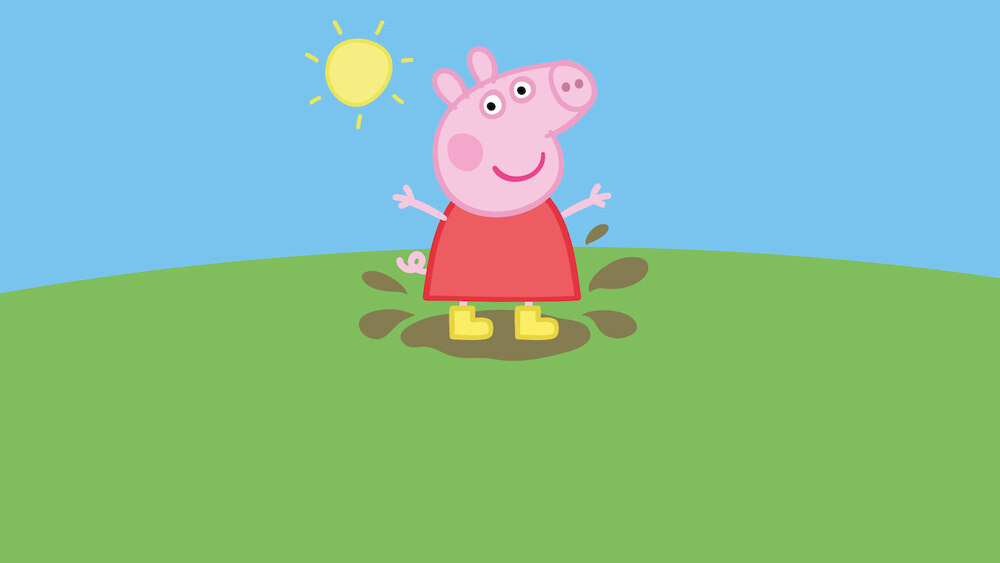Uncovering the Mystery: How Did Peppa Pig Die? Viral Fan Theory

The beloved British children’s television show, “Peppa Pig,” has captured the hearts of young viewers and their families worldwide since its debut in 2004. The show features Peppa, a cheeky little piggy who loves jumping in muddy puddles, and her adventures with her family and friends. However, in recent years, a dark and unexpected twist has emerged in the form of a viral fan theory questioning, “How did Peppa Pig die?” This theory has intrigued, shocked, and captivated audiences, leading to widespread discussions across various platforms. In this article, we will delve into the origins of this morbid theory, its impact on the fan community, and the reasons behind its popularity.
The Origin of the Dark Fan Theory
The theory about Peppa Pig’s untimely demise has originated from internet forums and social media platforms where show fans gather to share their thoughts, fan art, and theories. These platforms have become breeding grounds for creative reinterpretations of popular media, often taking a much darker turn than the original content. The theory posits that Peppa Pig is not merely a fictional character in a cheerful world but rather the result of a tragic backstory that explains her and other characters’ existence in the show’s universe.
One of the most circulated versions of this theory suggests that Peppa Pig was, in fact, a real child who suffered a tragic fate. According to the theory, Peppa was a young girl who had a severe illness that ultimately led to her death. The characters in the show, including her family and friends, are believed to be figments of her imagination, created as a coping mechanism to deal with her illness and eventual death. This narrative recontextualizes the show’s lighthearted episodes into a series of imagined adventures that a sick child conjured while facing a grim reality.
Analyzing the Theory’s Popularity
The appeal of the Peppa Pig death theory lies in its stark contrast to the innocent and cheerful nature of the show. The juxtaposition of Peppa Pig’s wholesome image with a macabre backstory intrigues fans and casual observers alike, creating a cognitive dissonance that fuels curiosity and discussion. Moreover, the internet culture of theorizing and reinterpreting media allows fans to engage with the content deeper, providing a platform to explore creative and often dark possibilities.
This theory also taps into a broader trend in fan communities, where beloved children’s shows and characters are reimagined with dark or tragic elements. This trend can be seen in various forms across different fandoms, from creepypastas to YouTube videos that reinterpret children’s media in unsettling ways. The Peppa Pig death theory fits neatly into this niche, offering a compelling narrative that transforms a simple children’s show into a complex and mysterious story.
The Impact on the Peppa Pig Fan Community
The spread of the Peppa Pig death theory has significantly impacted the fan community, eliciting a wide range of reactions. Some fans are fascinated by the theory, enjoying the opportunity to speculate and discuss the hidden meanings behind the show’s episodes. The theory adds a layer of intrigue to the series for these fans, transforming it from mere entertainment into a subject of deeper analysis and conversation.
However, not all fans are receptive to this dark reinterpretation. Many parents and guardians, in particular, express concern about the potential impact of such theories on young viewers. Since “Peppa Pig” is primarily targeted at preschool-aged children, introducing a grim backstory can be seen as inappropriate and disturbing. Critics argue that such theories detract from the show’s intended purpose of providing lighthearted, educational content for young audiences.
The creators and producers of “Peppa Pig” have largely remained silent, possibly recognizing that engaging with such theories might inadvertently legitimize them or draw further attention. By not addressing the theory, the show’s creators allow the speculation to remain in the realm of fan fiction and internet culture, separate from the official narrative of the show.
Exploring the Psychology Behind the Theory
Psychological factors can partially explain the persistence and popularity of the Peppa Pig death theory. Humans are naturally drawn to mysteries and unsolved questions, seeking answers and explanations for the unknown. This drive to uncover hidden truths is fundamental to human curiosity and storytelling. In the case of Peppa Pig, the theory provides an alluring mystery that challenges viewers to piece together clues and interpret the show’s content in a new light.
Additionally, the theory resonates with the concept of “cognitive dissonance,” where individuals experience discomfort when holding two conflicting ideas simultaneously. The wholesome, joyful nature of “Peppa Pig” starkly contrasts the dark and tragic narrative proposed by the theory. This contrast creates a sense of unease that compels individuals to explore the theory further, seeking a resolution for the dissonance they experience.
The theory also capitalizes on the internet’s tendency to amplify and spread sensational content. In the age of social media, intriguing and controversial ideas can quickly go viral, reaching a vast audience and generating widespread discussion. With its shocking premise and beloved subject matter, the Peppa Pig death theory is ideally suited for this environment, ensuring its continued circulation and impact.
The Role of Fan Theories in Modern Media
The Peppa Pig death theory is a prime example of how fan theories have become integral to modern media consumption. These theories allow fans to engage with content more deeply, transforming passive viewership into active participation. Fans create a dynamic and interactive relationship with the media they consume by speculating about hidden meanings, alternate endings, and backstories.
Fan theories also serve as communal storytelling, bringing fans together to share ideas, debate interpretations, and collaboratively build new narratives. This communal aspect fosters a sense of belonging and shared experience among fans, enhancing their connection to the content and each other.
Moreover, fan theories can influence the media, with creators sometimes acknowledging or incorporating fan-generated ideas into their work. While the Peppa Pig death theory is unlikely to be officially recognized or integrated into the show’s canon, other media franchises have embraced fan theories and used them to shape their storytelling. This feedback loop between fans and creators highlights the evolving nature of media consumption and production in the digital age.
Conclusion
The viral fan theory surrounding Peppa Pig’s death exemplifies modern media engagement’s complex and multifaceted nature. While the theory is unlikely to hold any factual basis, its popularity underscores the power of storytelling and the human desire to uncover hidden truths. For “Peppa Pig” fans, the theory offers a compelling, if unsettling, reinterpretation of a beloved children’s show. Whether viewed as a dark curiosity or dismissed as morbid fan fiction, the theory has undeniably left a mark on the Peppa Pig fan community and the broader landscape of internet culture.
Ultimately, “Peppa Pig” remains a cherished part of children’s entertainment, providing joy and educational value to young audiences worldwide. The dark fan theory, while intriguing, serves as a reminder of the diverse ways in which media can be interpreted and reimagined. As fans continue to explore and create, the world of Peppa Pig will undoubtedly remain a vibrant and dynamic space for storytelling and imagination.
Do Read: King Von Autopsy: Unveiling the Untold Story of His Tragic End







